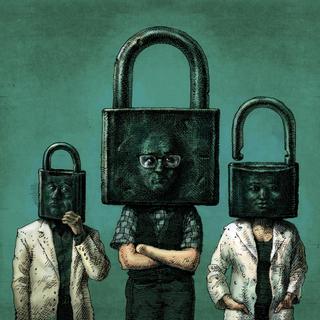


'Academics would do well to speak out before it's too late'
InterviewIn 2006, one in two people lived in a zone of academic freedom. Today, the figure is one in three. University budgets are shrinking and it has become difficult to discuss sensitive issues. Le Monde spoke to Katrin Kinzelbach, a specialist in international human rights policy and initiator of the annual Academic Freedom Index.
The signs are currently not reassuring for global scientific knowledge, nor for its contribution to the common good. On March 6, a group of 68 Nobel Prize winners, including British mathematician Roger Penrose and American virologist Harvey J. Alter, urged Javier Milei's Argentine government to reconsider the drastic cuts planned to university and scientific budgets. These renowned researchers emphasized the crucial role played by science in the country, particularly regarding the global scourges of cancer, diabetes and cardiovascular disease.
Ten days earlier, Professor Nitasha Kaul, a specialist in political science at the University of Westminster in London, announced on X that she had been arrested at Bangalore airport in India, despite her valid documents, as she arrived to give a lecture on February 24 and 25. She was locked in a cell for 24 hours "without easy access to food or water," and sent back to the UK without explanation. Her work covers the Indian government's policy in Kashmir. In India, once dubbed the world's largest democracy, the academic purge initiated by the government more than a decade ago is gathering pace.
These seemingly unrelated events are part of the same alarming trend. "Academic freedom is under threat all over the world," found a report published on March 7 by a German-Swedish team of researchers. University budgets are shrinking, restrictions or indeed cuts in certain areas of research are rife, and there are difficulties when it comes to expressing views on subjects considered sensitive. Their findings, synthesized in a global index called the "Academic Freedom Index", estimated that 45.5% of the world's population, or 3.6 billion people, live in an environment devoid of academic freedom. Among the major countries at the bottom of the ranking are, unsurprisingly, Xi Jinping's China, Vladimir Putin's Russia and Narendra Modi's India. The data, published annually, also shows the clear slippage of the US since 2019.
Like most European countries, France is among the better performers. In 2017, it launched the Pause program, which has welcomed nearly 550 scientists at risk from 43 countries. Brazilian researcher Larissa Mies Bombardi, for example, came to speak at the Collège de France on March 29. In her own country, she has been prevented from continuing her work on the impact of pesticides on health. She estimates that more than 670,000 Brazilian women may have been poisoned, 50 times more than official figures. Bombardi has now joined the French National Research Institute for Sustainable Development.
You have 83.18% of this article left to read. The rest is for subscribers only.
